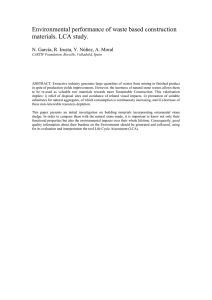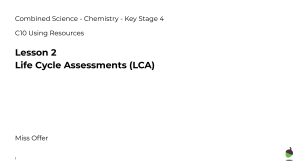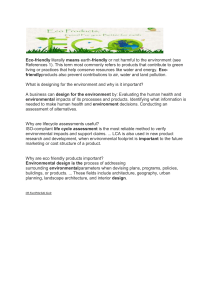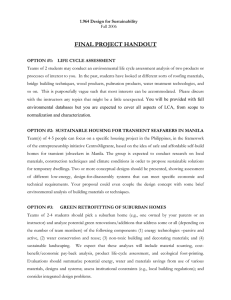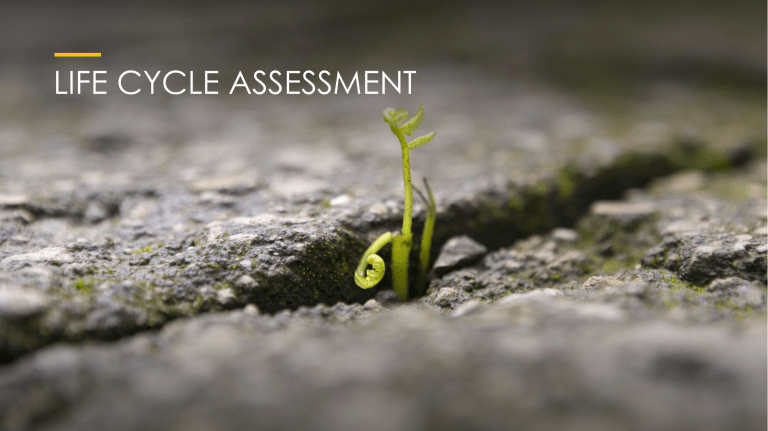
LIFE CYCLE ASSESSMENT INTRODUCTION • The introduction section of the document provides an overview of the importance and application of Life Cycle Assessment (LCA) as a tool to assess environmental impacts and resources used throughout a product's life cycle. • It underlines the increasing focus on environmental considerations in decision-making processes and the need for comprehensive assessments to avoid problem-shifting and ensure sustainable development. • The Research Paper emphasizes the evolving nature of LCA methodology and its growing influence on various sectors, including industry and policy-making, as well as the challenges and uncertainties associated with LCA practices. • Overall, this paper sets the stage for discussing recent developments and emerging issues in LCA methodology. METHODOLOGIES • The methodologies involved in the research paper "Recent developments in Life Cycle Assessment" encompass a wide array of techniques and approaches used in Life Cycle Assessment (LCA) research. • The paper discusses various methodological developments in LCA, including goal and scope definition, life cycle inventory analysis, life cycle impact assessment, interpretation, uncertainty analysis, scenario analysis, and modelling subsystems and unit processes. • Additionally, the paper explores the distinction between attributional and consequential LCA, the handling of allocation problems, and the incorporation of uncertainty information. • It also touches on the enhancement and standardization of environmental databases, as well as the approaches to uncertainty, toxicity, and water use impact assessment in LCA studies. CONCLUSION • The conclusion of the research paper "Recent developments in Life Cycle Assessment" highlights several key points. • The authors emphasize the need for integrating environmental considerations into various decision-making processes, particularly those related to goods and services. • They stress the importance of conducting comprehensive assessments of environmental impacts in a life-cycle perspective to avoid problem shifting and to address environmental concerns effectively. • Additionally, the authors note the strong methodological development in LCA over the past years, particularly in the areas of attributional and consequential LCA, inventory database development, specific tools, and uncertainty analysis. • The review indicates that while LCA has matured, there are areas where further development and improvement would be beneficial. • The authors specifically mention the need for further advancement in tools for consequential LCA, methods for assessment of impacts on ecosystems, approaches for indoor exposure modelling, and inclusion of other health aspects in social LCA. • They also stress the importance of addressing methodological choices, system boundaries, and uncertainty analysis to ensure a more comprehensive and reliable assessment of environmental impacts. • Overall, the conclusion highlights the ongoing evolution and refinement of LCA methodologies, the growing need for comprehensive assessments, and the emerging issues that require further attention and development in the field. REFERENCES
